German potato soup, or Kartoffelsuppe, represents the heart of traditional German home cooking - a … (More)
German Culture
German Culture: A Journey Through History, Heritage, and Modernity
Germany, at the heart of Europe, boasts a cultural heritage shaped by centuries of transformation, innovation, and influence. From medieval kingdoms to modern reunification, German culture offers a captivating blend of tradition and progress.
Historical Foundations of German Culture
Germany’s identity has been forged by key historical eras: the Holy Roman Empire, the Reformation, Enlightenment, industrialization, two World Wars, and the pivotal reunification after 1989. These milestones have left lasting impressions on German values, art, politics, and global influence.
The German Language and Literary Heritage
The German language is renowned for its depth and precision. Its literary tradition spans centuries, with iconic figures like Goethe, Schiller, and Thomas Mann, as well as modern voices such as Günter Grass and Nobel laureate Herta Müller. The Brothers Grimm not only shaped global storytelling but also contributed to the study of Germanic linguistics.
German Music, Art, and Architecture
Germany’s artistic legacy is immense. Classical composers like Bach, Beethoven, and Wagner revolutionized music. In the visual arts, movements like the German Renaissance, Expressionism, and Bauhaus influenced design and aesthetics worldwide.
Architecturally, Germany displays a rich spectrum—from Gothic cathedrals and Baroque palaces to Bauhaus modernism and Berlin’s futuristic skyline. Neuschwanstein Castle remains a fairy-tale icon of Romantic architecture.
Celebrating German Traditions and Festivals
Germany’s calendar is filled with cultural events rooted in regional customs.
- Oktoberfest:
Held annually in Munich, this world-famous beer festival celebrates Bavarian traditions with music, Lederhosen, Dirndl dresses, and hearty food. - Christmas Markets (Weihnachtsmärkte):
Dating back to the Middle Ages, these markets light up towns with festive stalls, crafts, Glühwein, and Lebkuchen. - Carnival (Karneval/Fasching):
Particularly vibrant in the Rhineland, Carnival features parades, costumes, and satirical performances, celebrating freedom and humor before Lent.
German Cuisine and Regional Flavors
German food is hearty and flavorful, varying by region. Bratwurst, Sauerkraut, and Pretzels are well-known, but each area adds its specialties—like Spätzle in the South, fish dishes in the North, or Hessen’s Apfelwein.
Germany’s beer culture is legendary, grounded in the 1516 Reinheitsgebot (Beer Purity Law). From Pilsner and Weizenbier to Kölsch, each region has its brew. German wines, especially Riesling from the Rhine and Mosel valleys, also enjoy global acclaim.
Why Explore German Culture?
German culture reflects a dynamic mix of deep-rooted tradition and contemporary creativity. Whether you’re passionate about history, art, music, food, or festivals, Germany offers endless inspiration. At GermanCulture.com.ua, we guide you through every layer of this remarkable cultural landscape.
Featured Story
Featured Stories
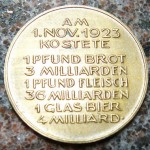
Problems of Parliamentary Politics in The Weimar Republic
The Weimar Republic was beset with serious problems from the outset that led many Germans either to withhold support from the new parliamentary democracy or to seek actively to destroy it. The extreme left and much of the right provided the republic’s most vitriolic opponents. Its supporters included the bulk of the left, represented by […]

Möbius Strip and Its Inventor
The Möbius strip or Möbius band is a surface with only one side and only one boundary component. The Möbius strip has the mathematical property of being non-orientable. It can be realized as a ruled surface. It was discovered independently by the German mathematicians August Ferdinand Möbius and Johann Benedict Listing in 1858. August Ferdinand […]

Dining with Germans: Table Manners That Will Impress
Dining in Germany is more than nourishment – it’s a structured, culturally meaningful ritual that blends tradition, etiquette, and unspoken social codes. If you’re ever invited to a German home or planning to dine out in Berlin, Munich, or a quiet village in the Mosel, understanding how to behave at the table will help you […]

Wilhelm Wundt – Father of Psychology
Wilhelm Maximilian Wundt (born on August 16, 1832 – died on August 31, 1920) was a German physician, physiologist and philosopher widely regarded as the “father of experimental psychology”. Wundt, who noted psychology as a science apart from philosophy and biology, was the first person ever to call himself a psychologist. Wundt was born at […]

Levi Strauss
The Origin of Levi’s Denim Blue Jeans The great father of blue jeans, Levi Strauss (February 26, 1829 – September 26, 1902) was a German-born American entrepreneur, Jewish by birth. Loeb Strauss (he liked the name “Levi Strauss”) was born in Buttenheim in Franconia, Bavaria in 1829. The 18-year-old German immigrant left for New York […]
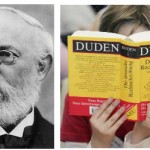
January 3 in German History
January 3, 1521 Pope Leo X publishes his Papal Bull Decet Romanum pontificem, condemning Martin Luther and officially excommunicating the Augustinian monk for burning Leo’s previous bull Exsurge Domine. January 3, 1571 Death of Joachim II Hektor. Joachim II Hektor was the Elector of Brandenburg at the time of the Reformation. He remained true to […]

Grebbel (Fried Dough)
Grebbel is deep-fried dough, something like a doughnut, which is fried and then served with powdered sugar sprinkled on it, while still warm. Ingredients: 1⁄2 cup soft butter (no substitute) 1⁄2 pint sour cream (do not use fat free or low fat) 4 eggs, beaten 4 cups flour 1⁄4 teaspoon baking soda 2 teaspoons baking […]

Helmut Schmidt
Following Brandt’s resignation in May 1974, the SPD-FDP coalition partners unanimously agreed that Minister of Finance Helmut Schmidt should head the new government. At fifty-five, Helmut Schmidt became the youngest chancellor of the FRG. Born in Hamburg in 1918, he served as an officer in World War II. After the war, he joined the SPD […]
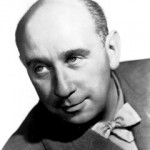
February 5 in German History
February 5, ca. 1015 Death of St. Adelheid von Vilich (ca. 960 – ca. 1015) St. Adelheid was born to a noble family in Vilich near Bonn, Germany. At a young age she entered the conventof St. Ursula in Cologne, Germany. Her family founded a convent at Vilich where she was made the abbess. She […]
Read More

Exploring the Depths of German Philosophy: A Journey Through Time and Thought
German philosophy, a beacon of intellectual thought, has profoundly shaped the landscape of modern philosophy. From the intricate ideas of Immanuel Kant to the existential musings of Friedrich … [Read More...]
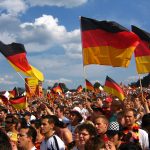
How to Move to Germany
If you do not want to completely say goodbye to your own country in order to live in Germany, permanent residency to guarantee you can stay long-term might be a better bet. Taking up residency in … [Read More...]

Mastering Doppelkopf: The Complete Guide
Doppelkopf, often called "Doko," is one of Germany’s most beloved and strategic card games. Played widely in pubs, clubs, and tournaments, it combines clever partnerships, tactical trick-taking, and … [Read More...]
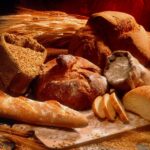
How Germany Became the Land of Bread: A Deep Dive into 300+ Types of German Bread
Germany is often referred to as the "Land of Bread", boasting an incredible variety of over 300 different types of bread and thousands of regional variations. Bread is not just a staple in Germany; it … [Read More...]
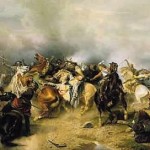
The Thirty Years’ War
Germany enjoyed a time of relative quiet between the Peace of Augsburg, signed in 1555, and the outbreak of the Thirty Years' War in 1618. The empire functioned in a more regular way than previously, … [Read More...]
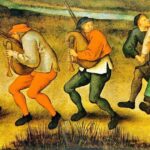
The Dark Side of German History: Strange and Unusual Events
Germany’s history is full of invention, philosophy, and cultural brilliance—but beneath that polished surface lies a strange and eerie past. From bizarre medieval justice systems to mysterious … [Read More...]
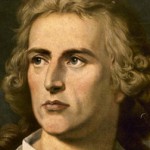
Friedrich von Schiller – the German Genius of Beauty and Freedom
Friedrich Schiller (November 10, 1759 - May 9, 1805), later ennobled to Friedrich von Schiller by the Duke of Wurttemberg, is one of the most famous German philosophers, playwrights and … [Read More...]

Dresden Semper Opera House
Dresden Theaterplatz is the heart of tourists' pilgrimage. First of all the place is famous for sightseeing tour which may take long hours to value enough the beauty of Zwinger, Schinkelwache … [Read More...]
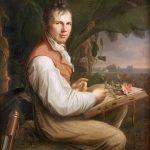
Alexander von Humboldt – German Naturalist and Explorer
Alexander von Humboldt (born Sept. 14, 1769, Berlin—died May 6, 1859, Berlin), a German naturalist and explorer who was a major figure in the classical period of physical geography and … [Read More...]
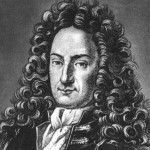
July 1 in German History
July 1, 1646 Birth of Gottfried Leibniz (1646-1716) in Leipzig. Leibniz was a German mathematician and philosopher. He occupies a prominent place in the history of mathematics and the history … [Read More...]
